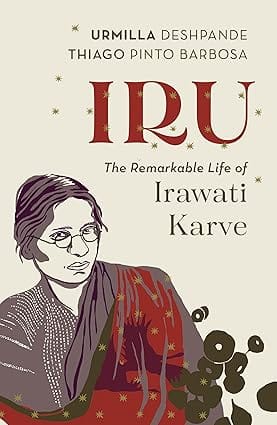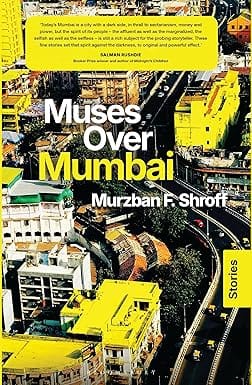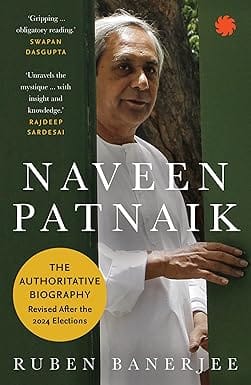- Contemporary Fiction
- Contemporary Fiction
- Children
- Children
- Comics & Graphic Novels
- Comics & Graphic Novels
- Non-Fiction
- Non-Fiction
- Fiction
- Fiction
In 1927, when Irawati Karve, aged twenty-two, arrived in Berlin to do her doctoral studies at the Friedrich Wilhelm University, she was faced with a dilemma. As a woman of colour, the subject of her thesis was to prove her supervisor Dr Eugen Fischer’s theory of the superiority of the European race over people of colour, based on the measurement of their skulls. After examining 149 ‘white’ skulls from Germany and ‘non-white’ skulls from German colonies in East Africa, Irawati came to the opposite conclusion: the shape of the human skull did not prove racial superiority. Fischer’s theory was later discredited, but at the time, it took courage to present the paper to him and it nearly cost Irawati her PhD.
Courage and a pioneering spirit continued to be her hallmarks on her return to India. At a time when such field trips were difficult if not dangerous, she travelled to the Adivasi areas in Coorg, Western Maharashtra, Assam, Kerala and Bihar. Her research resulted in two seminal works, Kinship Organisation in India and Hindu Society.
In 1968, she won the Sahitya Akademi Award for her book of essays on the Mahabharata, Yuganta. Irawati’s belief that the Mahabharata was not just an epic, but a historical record, earned her some criticism from her peers at the time, but Yuganta remains a classic to this day.
As the daughter-in-law of the reformist and feminist thinker, Maharshi Dhondo Karve, adored wife of Dinkar Karve, and privileged daughter of two families— her own parents, Ganesh and Bhagirathi Karmarkar, and her adoptive family, R.P. Paranjpye and his wife, Saitai—Irawati’s personal life was as rich and colourful as her professional one.
In this biography like none other, writer Urmilla Deshpande, Irawati’s granddaughter, and academic researcher Thiago Pinto Barbosa, have created an intimate, captivating portrait of Irawati Karve, the anthropologist and philosopher, and Irawati, the woman, wife and mother. As author and Joint Director, JLF, Namita Gokhale says, ‘Irawati Karve stood tall with the tallest of her generation. This biography is a beacon for those who want to understand the Indian way—an inspirational story of an iconic figure.’
About the Author
Urmilla Deshpande writes novels and short fiction. Her published work includes A Pack of Lies, Slither: Carnal Prose, and Body and Blood: Stories on Breaking the Ten Commandments.
Thiago Pinto Barbosa is a Brazilian anthropologist based in Leipzig and Berlin. Thiago’s doctoral dissertation, published as Racializing Caste: Anthropology between Germany and India and the Legacy of Irawati Karve (1905-1970) has received multiple awards.
- Home
- Non-Fiction
- Biographies
- Iru The Remarkable Life Of Irawati Karve
Iru The Remarkable Life Of Irawati Karve
SIZE GUIDE
- ISBN: 9789354479595
- Author: Urmilla Deshpande
- Publisher: Speaking Tiger
- Pages: 292
- Format: Hardback
Book Description
In 1927, when Irawati Karve, aged twenty-two, arrived in Berlin to do her doctoral studies at the Friedrich Wilhelm University, she was faced with a dilemma. As a woman of colour, the subject of her thesis was to prove her supervisor Dr Eugen Fischer’s theory of the superiority of the European race over people of colour, based on the measurement of their skulls. After examining 149 ‘white’ skulls from Germany and ‘non-white’ skulls from German colonies in East Africa, Irawati came to the opposite conclusion: the shape of the human skull did not prove racial superiority. Fischer’s theory was later discredited, but at the time, it took courage to present the paper to him and it nearly cost Irawati her PhD.
Courage and a pioneering spirit continued to be her hallmarks on her return to India. At a time when such field trips were difficult if not dangerous, she travelled to the Adivasi areas in Coorg, Western Maharashtra, Assam, Kerala and Bihar. Her research resulted in two seminal works, Kinship Organisation in India and Hindu Society.
In 1968, she won the Sahitya Akademi Award for her book of essays on the Mahabharata, Yuganta. Irawati’s belief that the Mahabharata was not just an epic, but a historical record, earned her some criticism from her peers at the time, but Yuganta remains a classic to this day.
As the daughter-in-law of the reformist and feminist thinker, Maharshi Dhondo Karve, adored wife of Dinkar Karve, and privileged daughter of two families— her own parents, Ganesh and Bhagirathi Karmarkar, and her adoptive family, R.P. Paranjpye and his wife, Saitai—Irawati’s personal life was as rich and colourful as her professional one.
In this biography like none other, writer Urmilla Deshpande, Irawati’s granddaughter, and academic researcher Thiago Pinto Barbosa, have created an intimate, captivating portrait of Irawati Karve, the anthropologist and philosopher, and Irawati, the woman, wife and mother. As author and Joint Director, JLF, Namita Gokhale says, ‘Irawati Karve stood tall with the tallest of her generation. This biography is a beacon for those who want to understand the Indian way—an inspirational story of an iconic figure.’
About the Author
Urmilla Deshpande writes novels and short fiction. Her published work includes A Pack of Lies, Slither: Carnal Prose, and Body and Blood: Stories on Breaking the Ten Commandments.
Thiago Pinto Barbosa is a Brazilian anthropologist based in Leipzig and Berlin. Thiago’s doctoral dissertation, published as Racializing Caste: Anthropology between Germany and India and the Legacy of Irawati Karve (1905-1970) has received multiple awards.
User reviews
NEWSLETTER
Subscribe to get Email Updates!
Thanks for subscribing.
Your response has been recorded.

India's Iconic & Independent Book Store offering a vast selection of books across a variety of genres Since 1978.
"We Believe In The Power of Books" Our mission is to make books accessible to everyone, and to cultivate a culture of reading and learning. We strive to provide a wide range of books, from classic literature, sci-fi and fantasy, to graphic novels, biographies and self-help books, so that everyone can find something to read.
Whether you’re looking for your next great read, a gift for someone special, or just browsing, Midland is here to make your book-buying experience easy and enjoyable.
We are shipping pan India and across the world.
For Bulk Order / Corporate Gifting
 +91 9818282497 |
+91 9818282497 |  [email protected]
[email protected]
Click To Know More
INFORMATION
ACCOUNT
QUICK LINKS
ADDRESS
Shop No.20, Aurobindo Palace Market, Near Church, New Delhi














